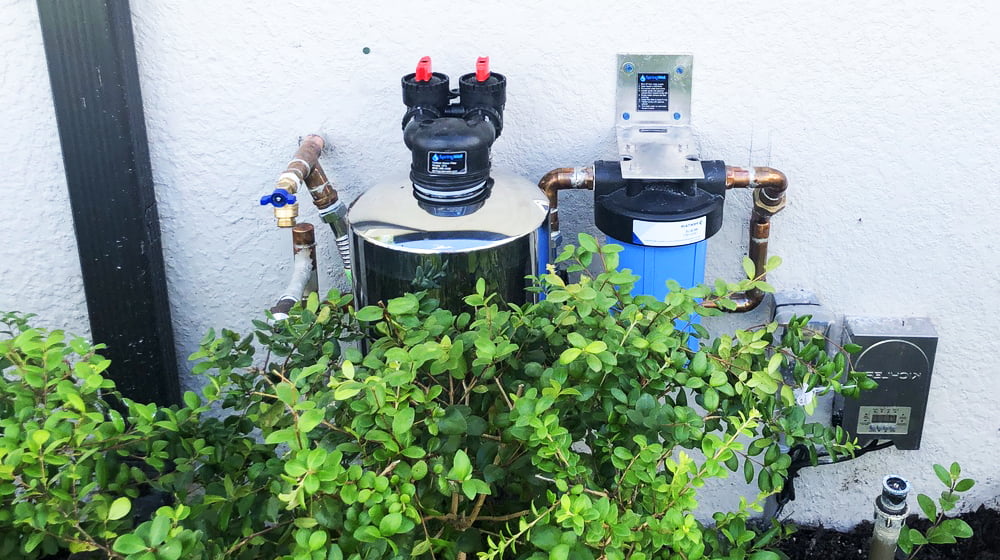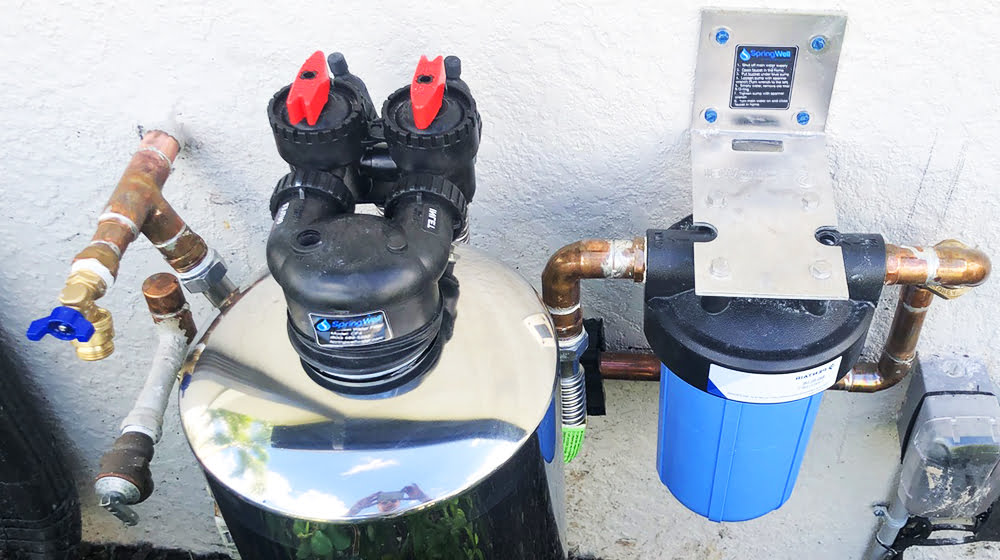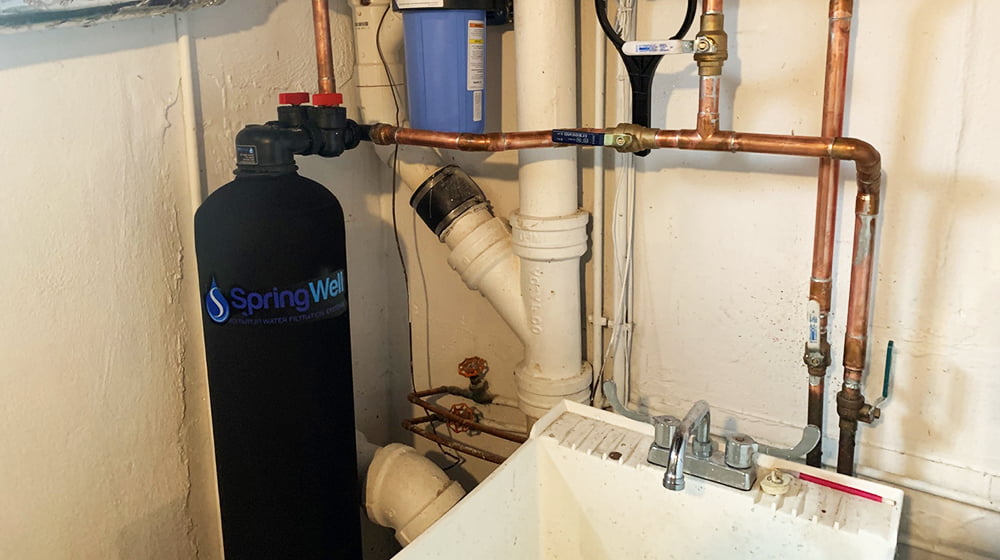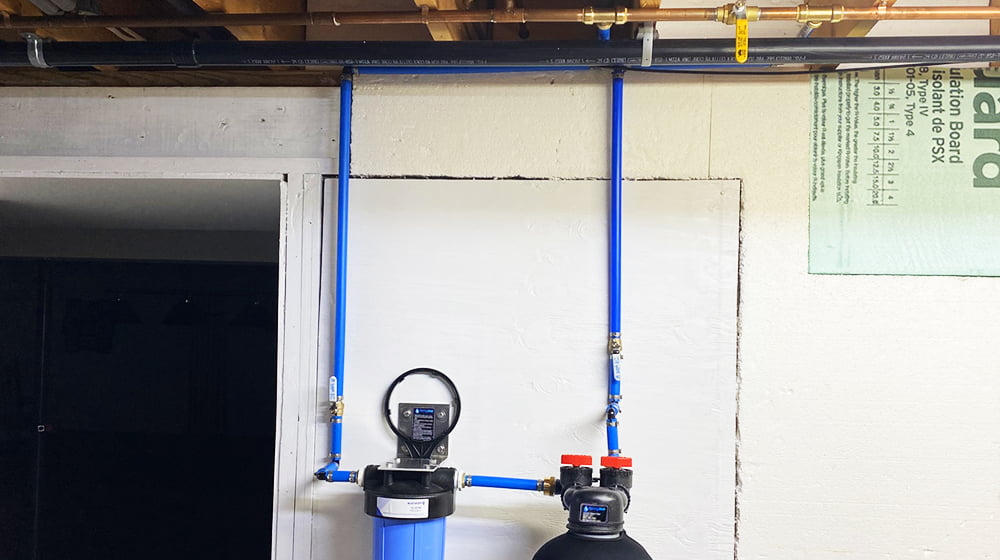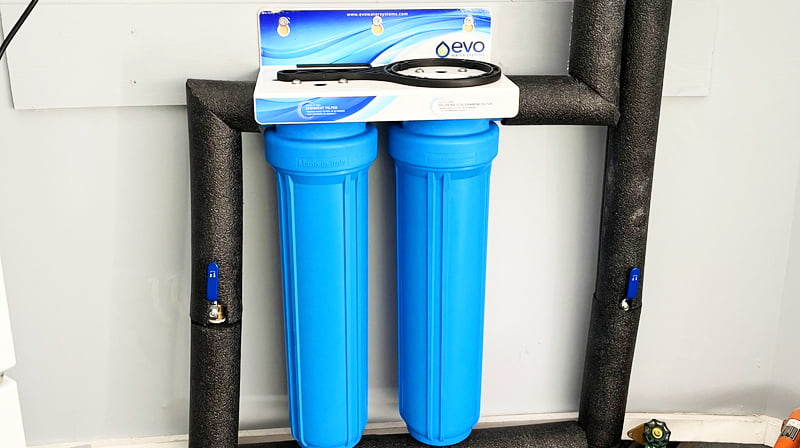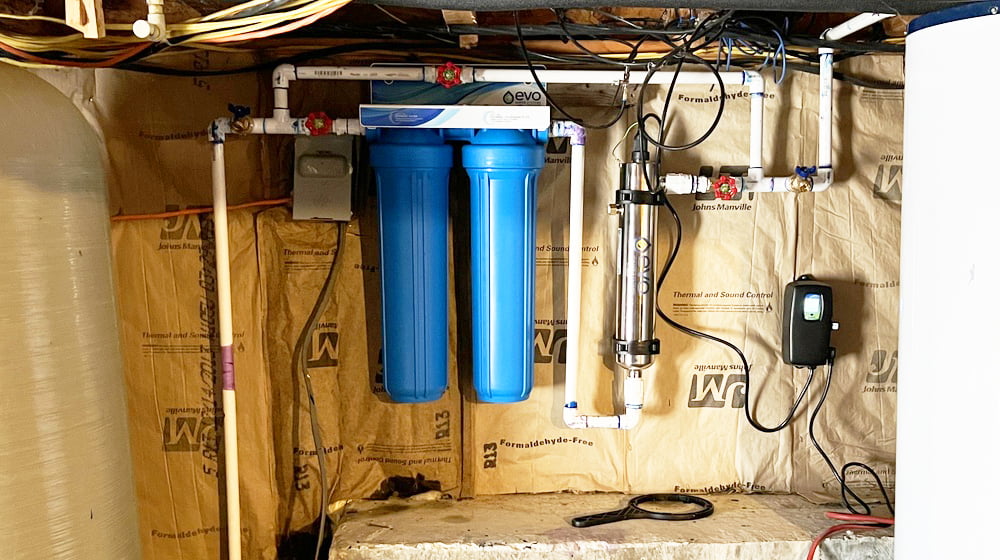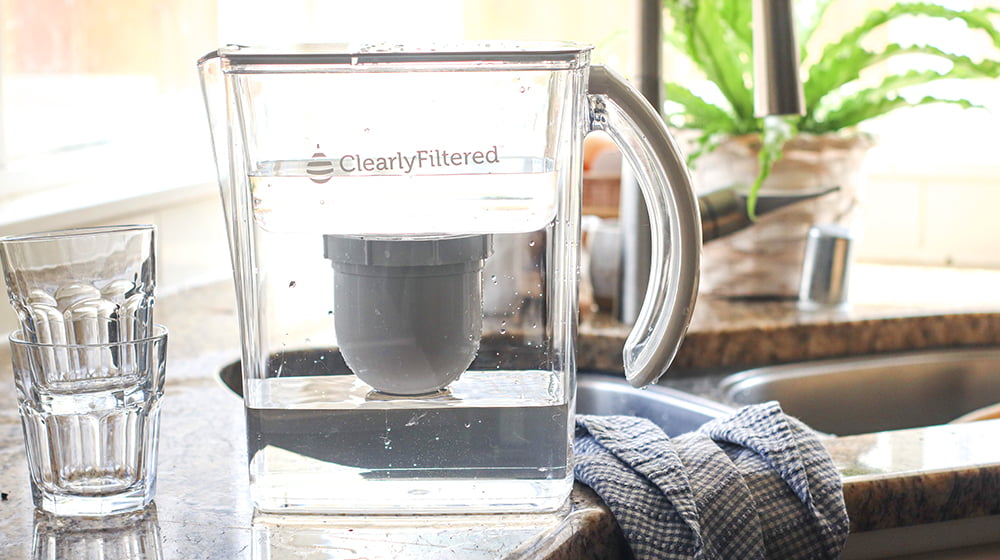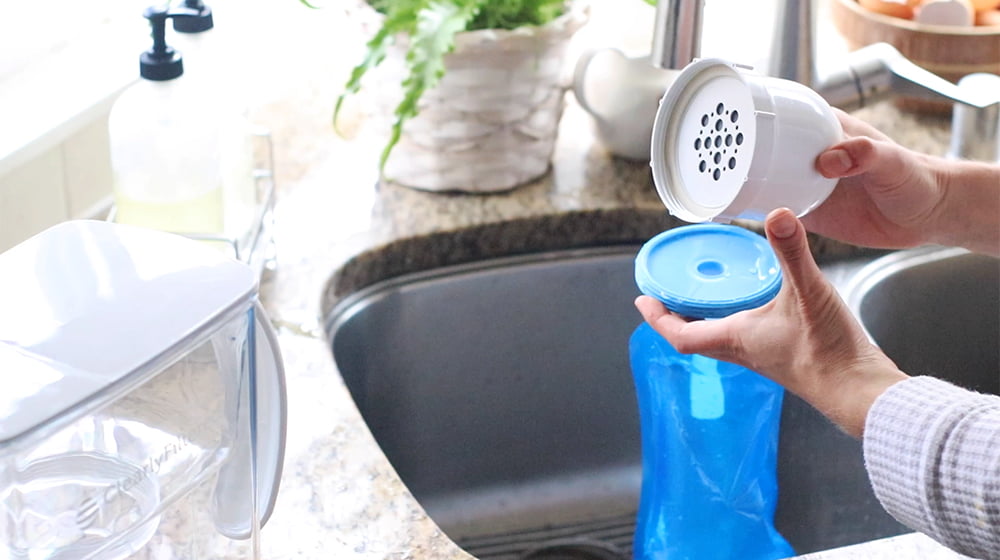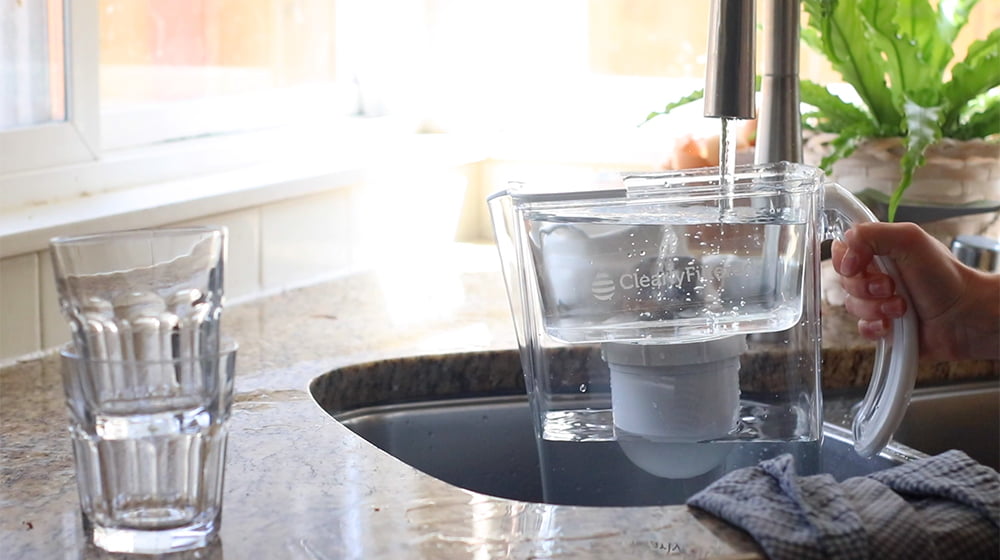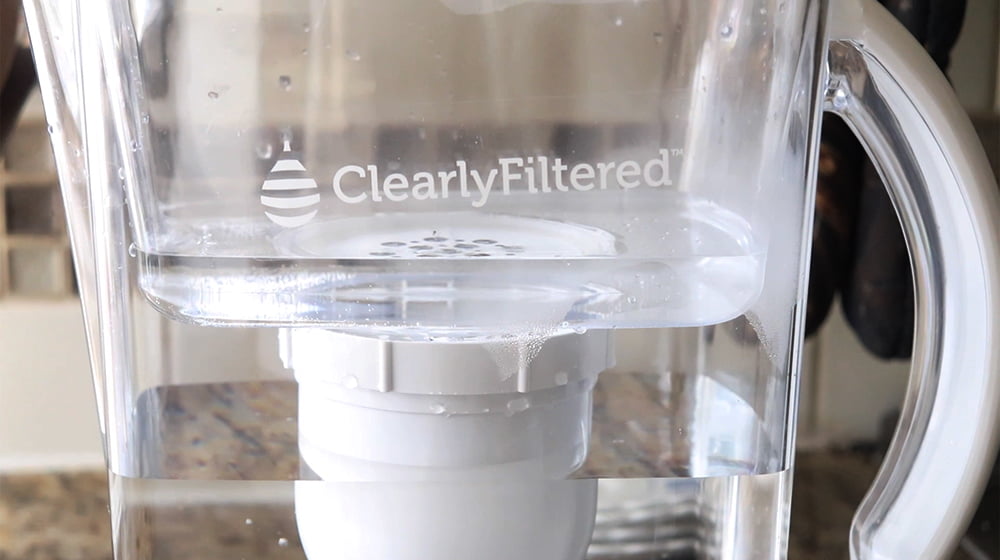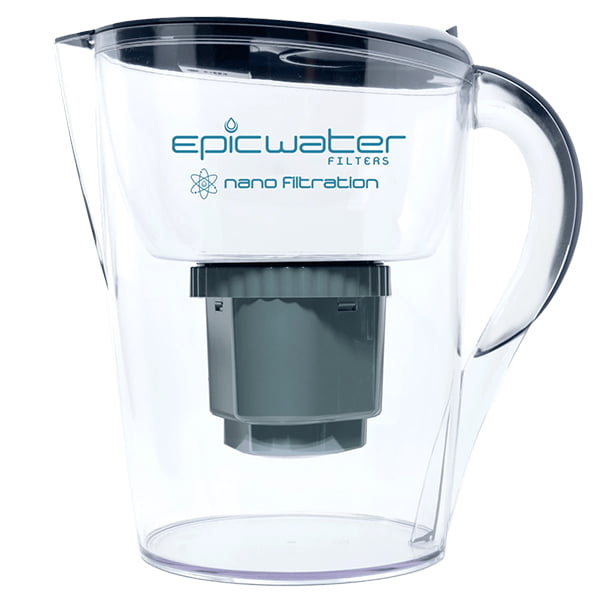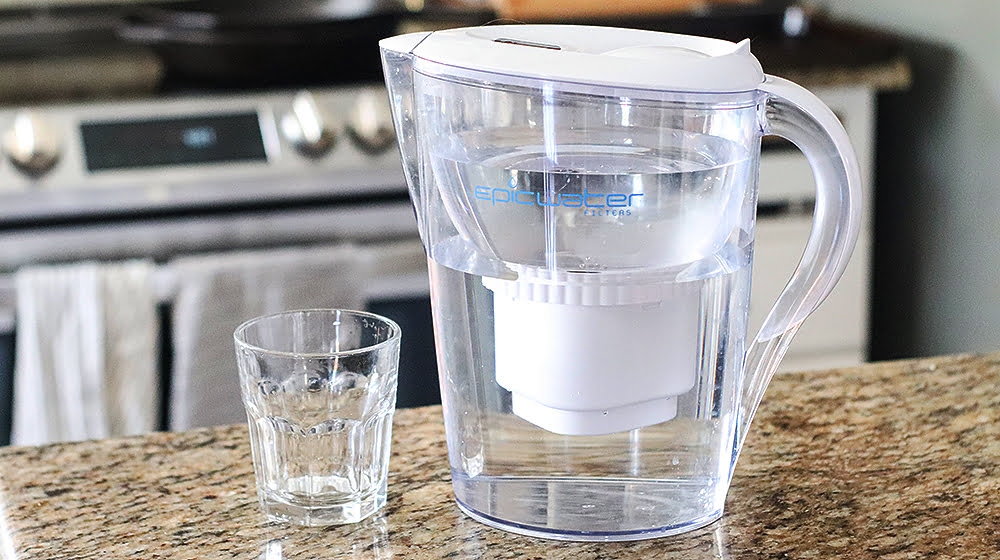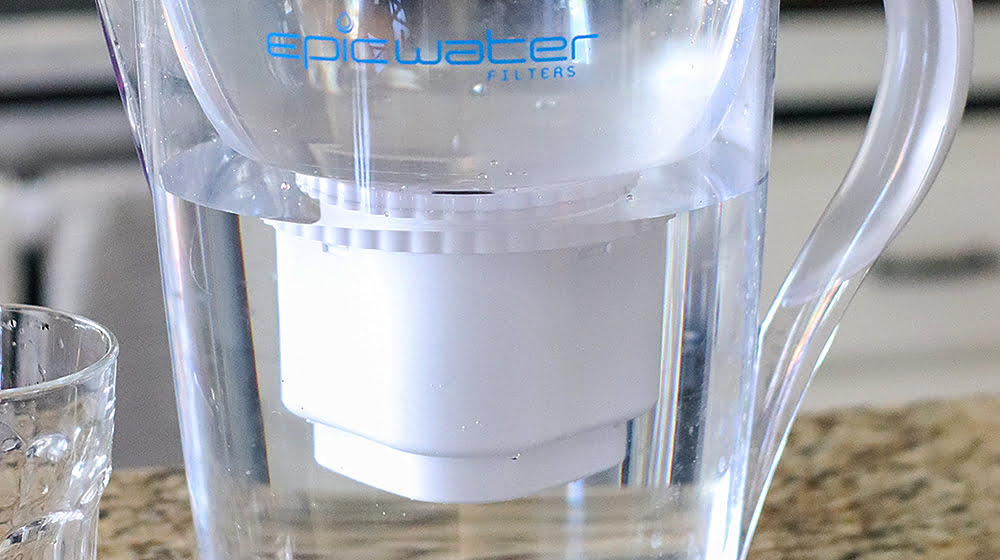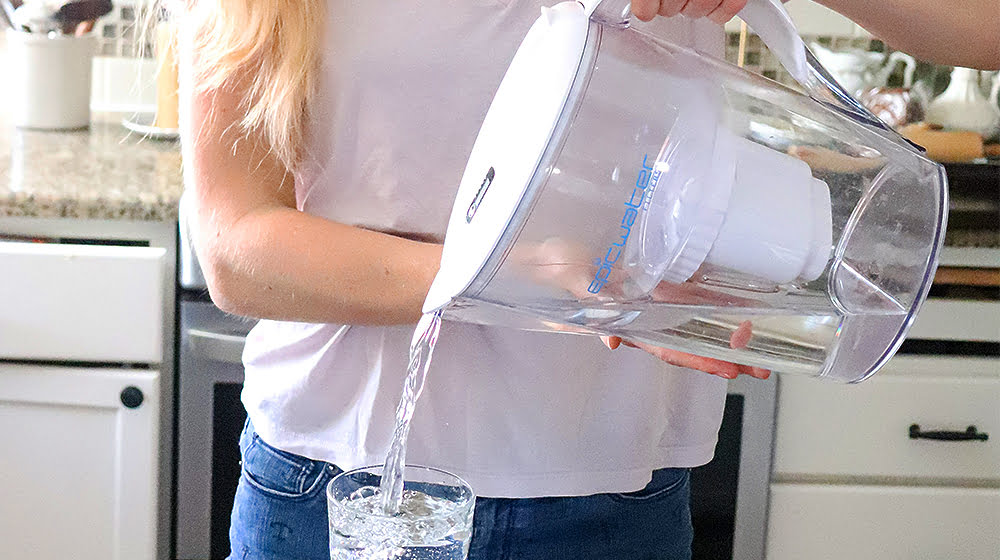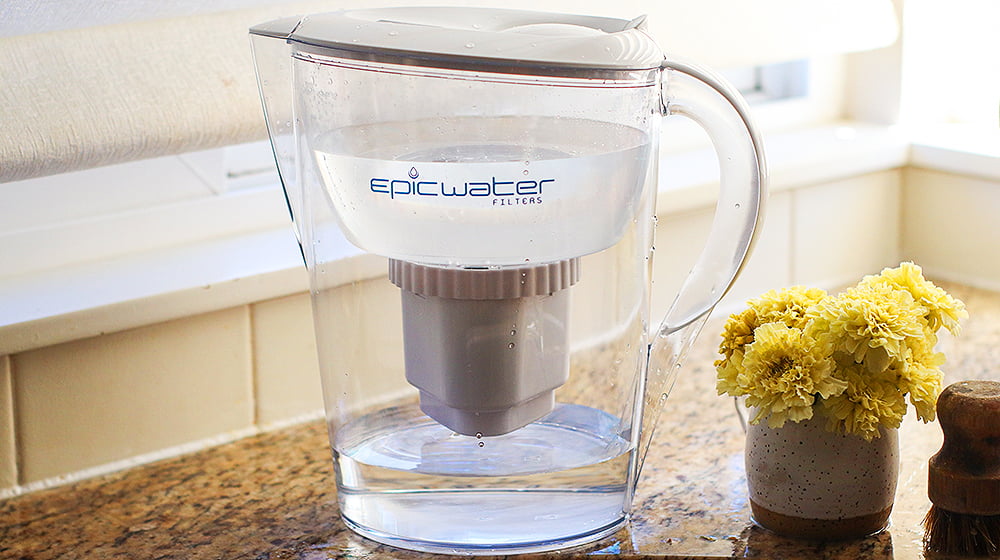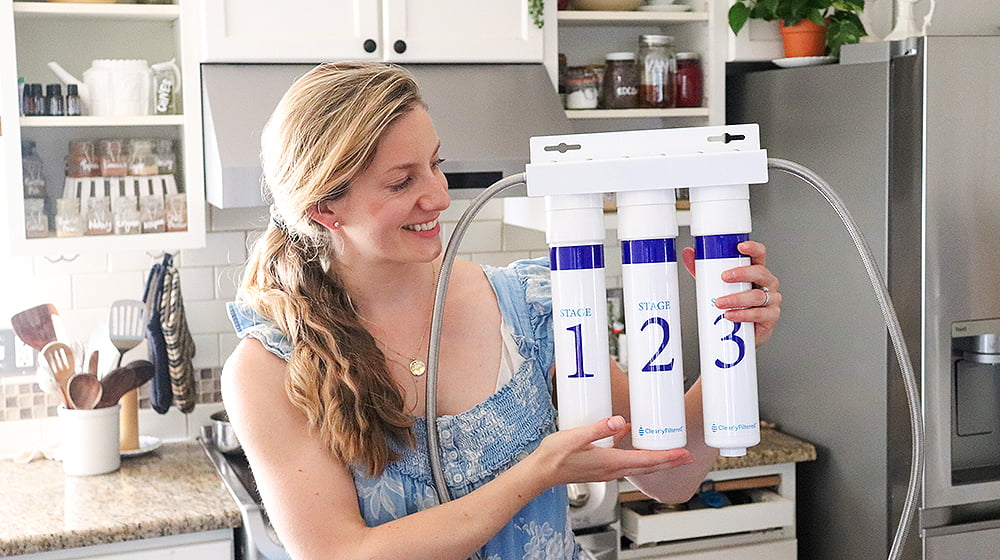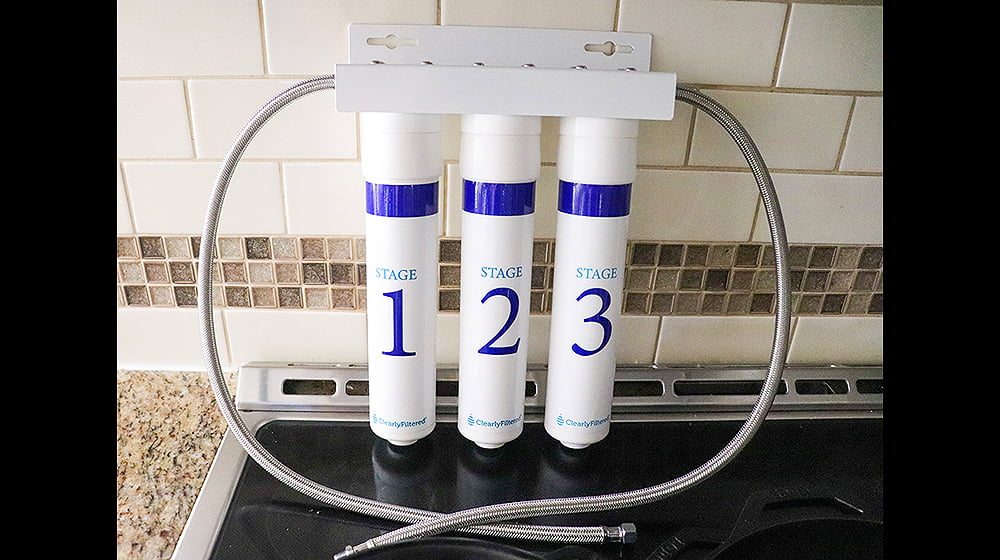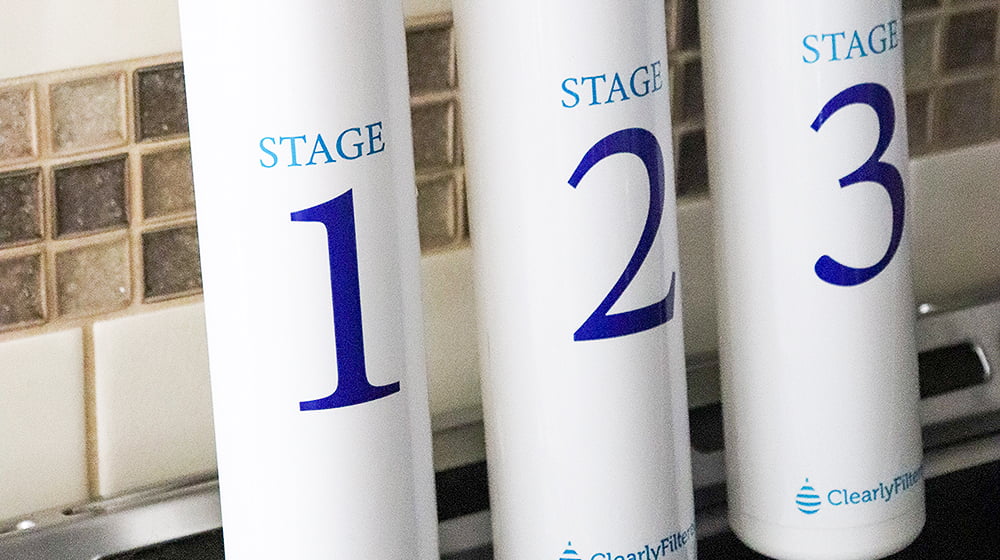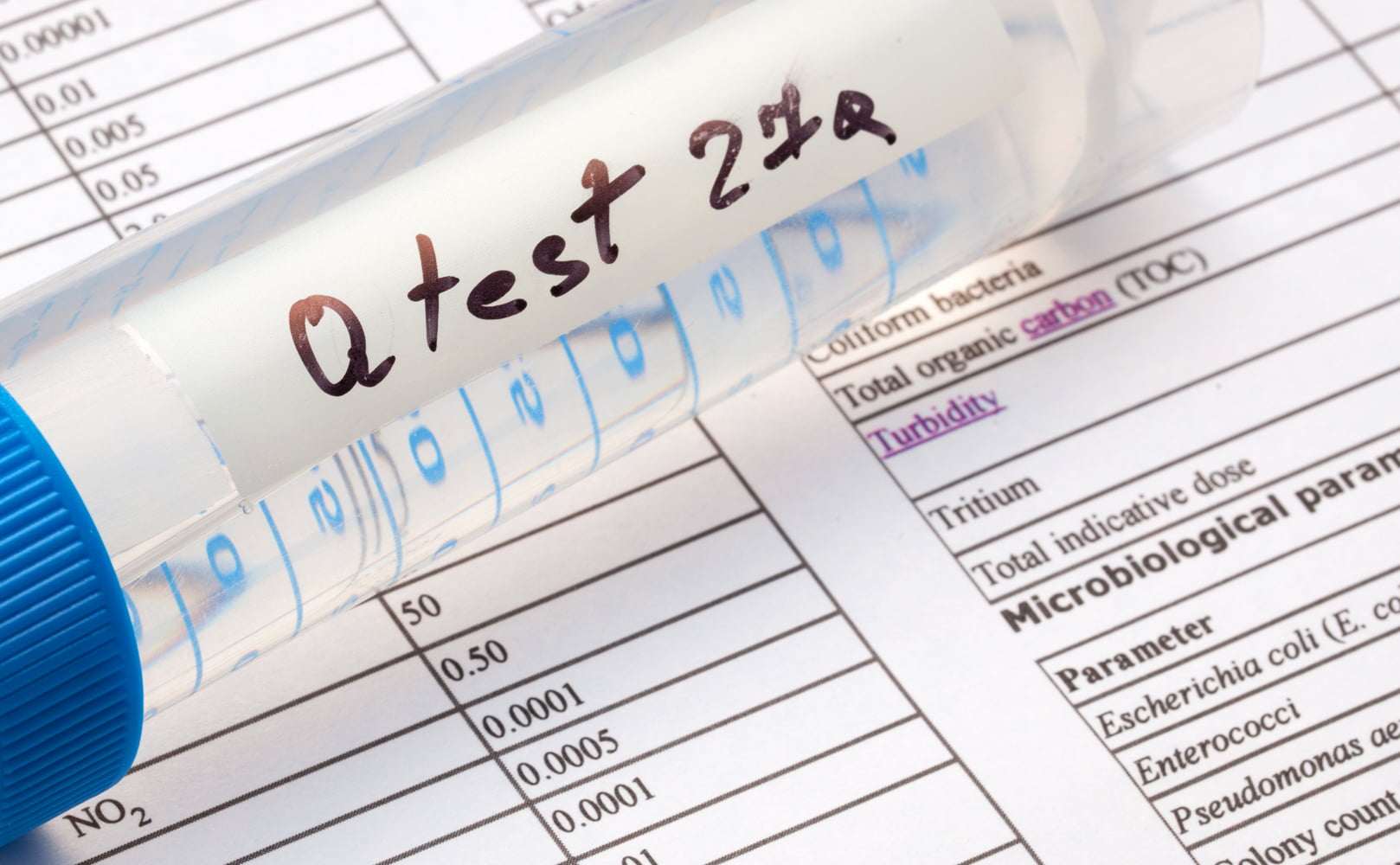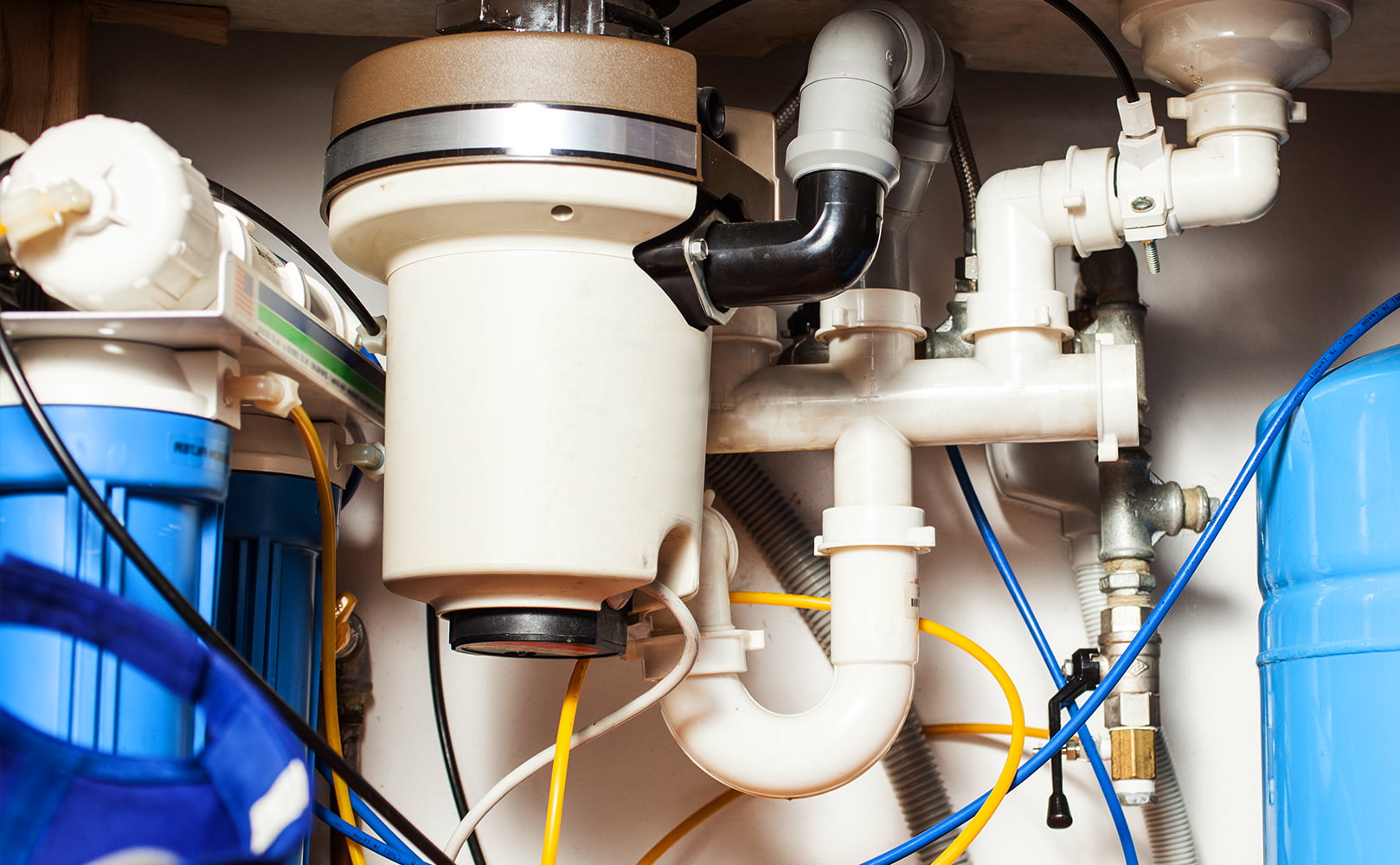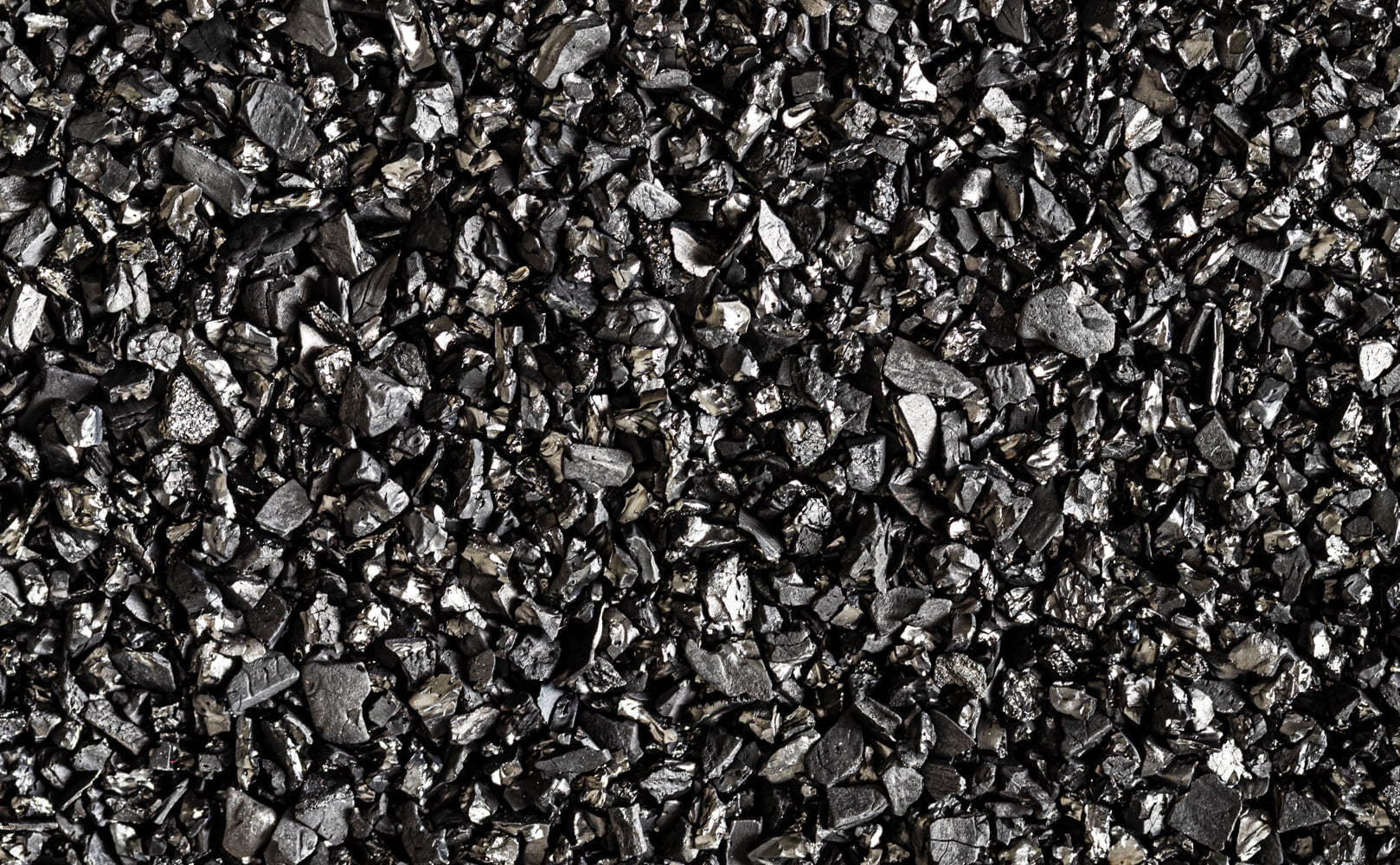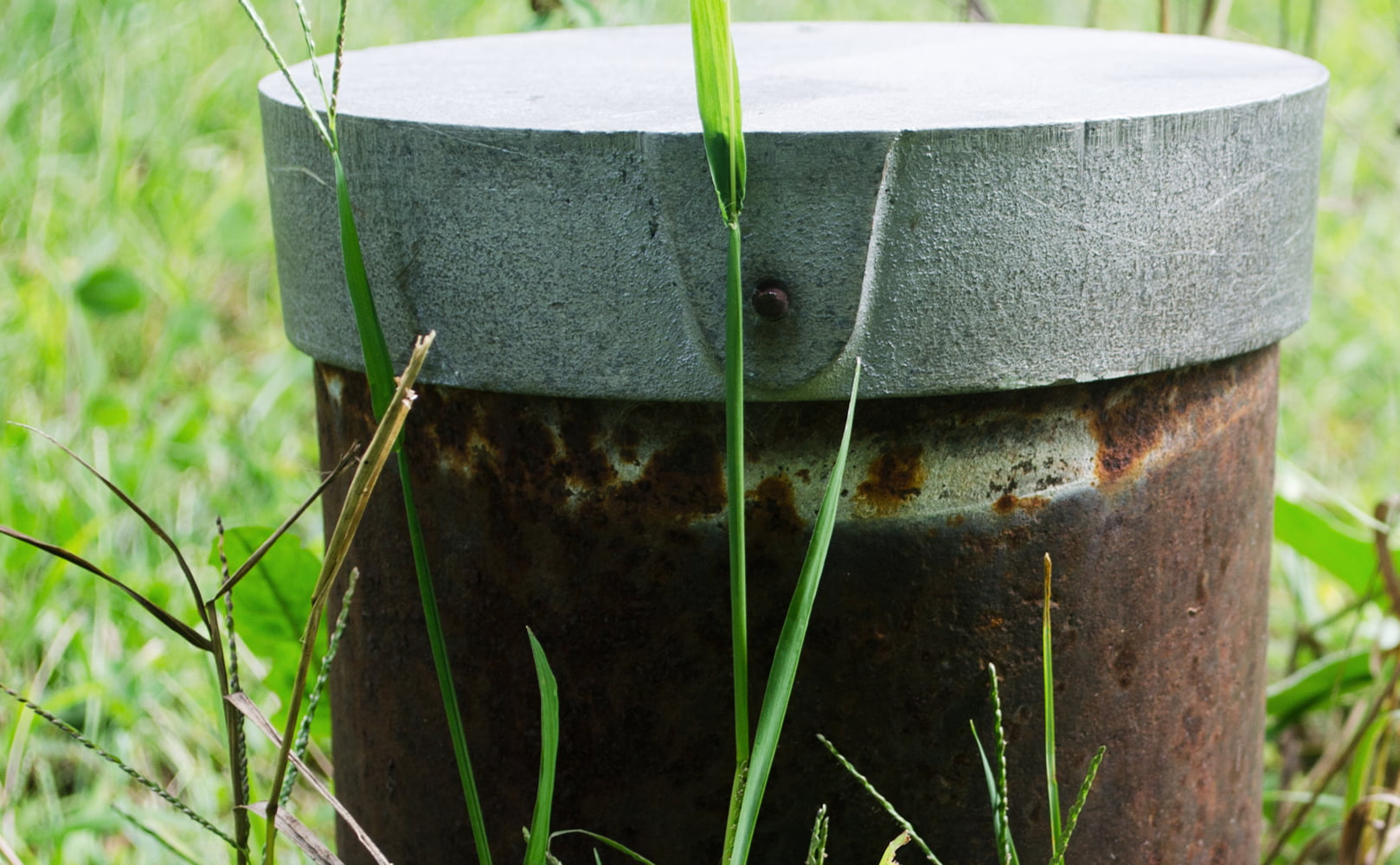7 Best Carbon Filters for Well Water (*Update 2024)
Written by: Gene Fitzgerald // Expert Fact-Checking: Buddhini Dolapihilla, MBSS // Last Updated: Jan 31, 2024
This page may contain affiliate links. If you buy a product or service through such a link we earn a commission at no extra cost to you. Learn more.
Top Pick: What’s the Best Carbon Filter for Well Water?
The best carbon filter for well water in 2024 is the SpringWell CF, because it uses catalytic carbon to protect your entire home and family from contaminants for up to 1,000,000 gallons of water. It further improves water aesthetics, is easy to install and maintain, and backed by a satisfaction guarantee and lifetime warranty.
Looking for the perfect carbon filter for your well water? Look no further! With the market for carbon well water filters being quite vast, it can be overwhelming to find the right system for your needs. That’s why we’ve created this comprehensive buying guide. Our team has evaluated well over 35 different filters and counting to bring you the top options available. Get ready to discover your ideal system and enjoy clean, pure well water!
No Time to Read? Check Our List of the Best Carbon Filters for Well Water!
| Product | Details | |
|---|---|---|
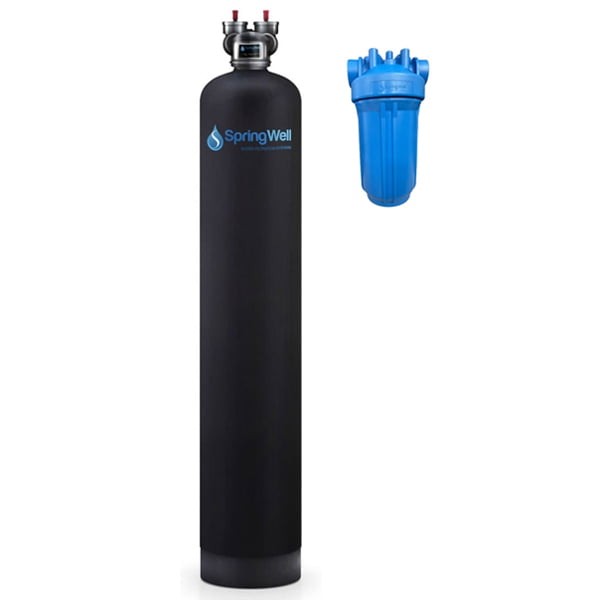 Best for Whole House: SpringWell CF |
Overall Rating: 5.0/5.0 ⓘRatings based on filter performance, purchase and yearly cost, NSF testing/certification, service life, customer support, warranty, hands-on testing, user reviews, and other factors.
Get 5% Off! Use Code: |
Price: $$$ Filter Type: Whole House Carbon Type: Catalytic Carbon Filter Capacity: 1,000,000 gal Annual Cost: ~$40 Read Review: Click Mike’s Video Review: Click |
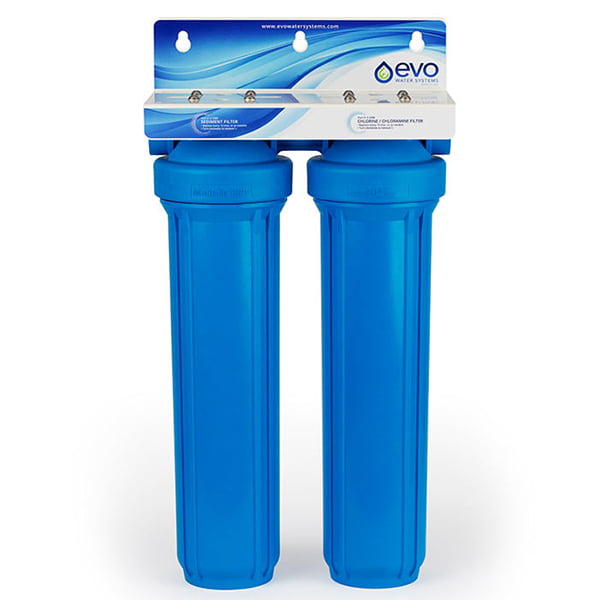 Whole House Alternative: Kind E-1000 |
Overall Rating: 4.5/5.0 ⓘRatings based on filter performance, purchase and yearly cost, NSF testing/certification, service life, customer support, warranty, hands-on testing, user reviews, and other factors.
Get 5% Off! Use Code: |
Price: $$$ Filter Type: Whole House Carbon Type: Catalytic Carbon Block Filter Capacity: 1 Year Annual Cost: ~$145 Read Review: Click Mike’s Video Review: Click |
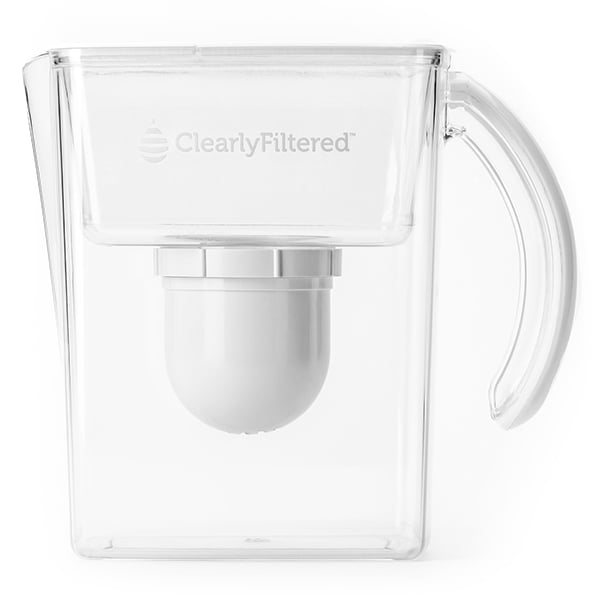 Best for Lower Budgets: Clearly Filtered Pitcher |
Overall Rating: 5.0/5.0 ⓘRatings based on filter performance, purchase and yearly cost, NSF testing/certification, service life, customer support, warranty, hands-on testing, user reviews, and other factors.
Get 10% Off! Use Code: |
Price: $ Filter Type: Filter Pitcher Carbon Type: Granular Activated Carbon Filter Capacity: 100 Gallons Annual Cost: ~$150 Read Review: Click Alexa’s Video Review: Click |
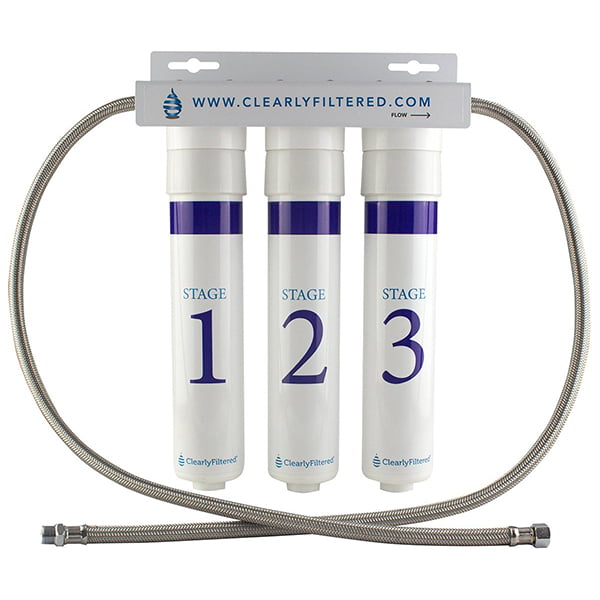 Best for Under Sink: Clearly Filtered 3-Stage |
Overall Rating: 5.0/5.0 ⓘRatings based on filter performance, purchase and yearly cost, NSF testing/certification, service life, customer support, warranty, hands-on testing, user reviews, and other factors.
Get 10% Off! Use Code: |
Price: $$ Filter Type: Under Sink System Carbon Type: Granular Activated Carbon Filter Capacity: 2,000 Gallons Annual Cost: $440 Read Review: Click Alexa’s Video Review: Click |
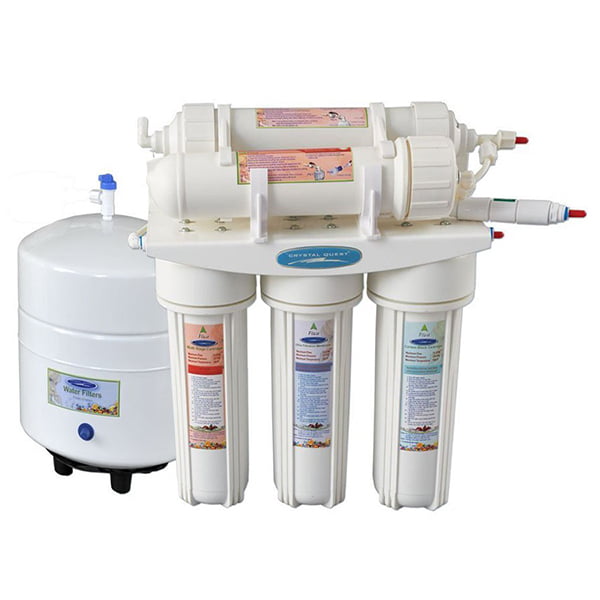 Best Carbon Combined with RO: Crystal Quest 1000C |
Overall Rating: 4.5/5.0 ⓘRatings based on filter performance, purchase and yearly cost, NSF testing/certification, service life, customer support, warranty, hands-on testing, user reviews, and other factors.
Get 5% Off! Use Code: |
Price: $$ Filter Type: Reverse Osmosis System Carbon Type: Activated Carbon Block, 2x Granular Carbon Filter Capacity: 12 Months to 3 Years Annual Cost: ~$100-155 Read Review: Click |
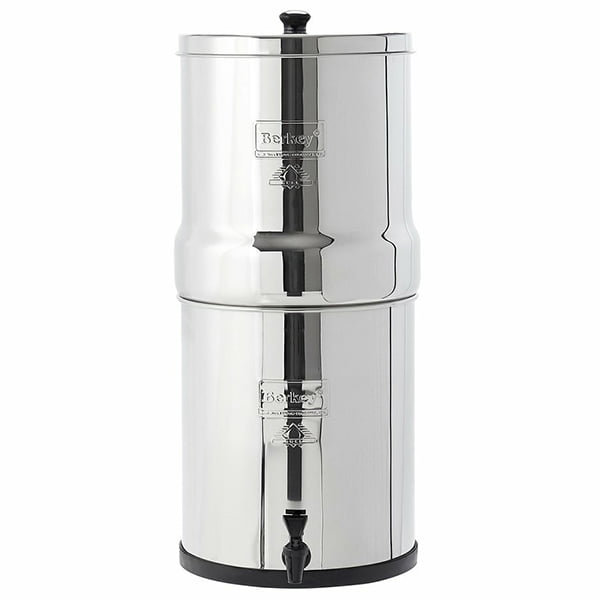 Best for Gravity Filtration: Big Berkey |
Overall Rating: 4.5/5.0 ⓘRatings based on filter performance, purchase and yearly cost, NSF testing/certification, service life, customer support, warranty, hands-on testing, user reviews, and other factors.
|
Price: $$ Filter Type: Gravity Filter Carbon Type: Activated Carbon Filter Capacity: 3,000 Gallons Annual Cost: ~$55 Read Review: Click |
Carbon Well Water Filter Reviews
Our Top Picks
- SpringWell CF – Best for Whole House Filtration
- Kind Water Systems E-1000 – Whole House Alternative
- CF Pitcher – Best Budget Pick
- Epic Nano – Runner-Up Filter Pitcher
- CF 3-Stage – Best for Under the Sink
- Crystal Quest 1000C – Best for Carbon Combined with Reverse Osmosis
- Big Berkey – Best for Gravity Filtration
1. Best for Whole House: SpringWell CF
In our opinion, the best carbon filter for well water in 2024 is the SpringWell CF – provided you are looking for a whole house water filter.
Most importantly, the SpringWell CF uses catalytic carbon to remove many of the organic contaminants commonly found in well water (VOCs, pesticides, herbicides, and more) + hydrogen sulfide.
Mike’s Video Review
Mike, one of our inhouse video content producers, has ordered, installed, and tested the SpringWell CF Whole House Water Filter in his own home – including lab testing for contaminant reduction rates. You cannot get more hands-on experience than that! Mike has documented the entire process and shares his findings the video below:
Other Specs
- Model: CF1, CF4, CF+
- Last Price: $1,016.44-$1,737.21
- Entire Filter Process: 5-Micron Sediment, Catalytic Carbon + KDF
- Filter Stages: 2
- Flow Rate: 9-20 gpm
- WxHxD: 9-13″x52-58″x9-13″
- Water Temperature: 36-120 °F
- Water Pressure: 25-80 psi
- Fitting: 1″-1.5″
- Warranty: Lifetime (Limited)
Key Features & Pros
- The tank-based whole house water filter system comes with three stages.
- A 5-micron sediment filter removes large particles from the well water to protect the latter filter stage as well as protecting your plumbing system and appliances.
- Catalytic carbon filter media removes chlorine, VOCs, pesticides, herbicides, disinfection byproducts, and many other kinds of organics that may have leached into your well water supply. It also eliminates rotten-egg smell.
- KDF media removes some heavy metals and chlorine, as well as controls the growth of bacteria, viruses, fungi, and algae in the tank.
- The system will remove chlorine (and chloramine) to below-detectable levels for 1,000,000 gallons or 6 years.
- 3 different-sized systems are available:
- CF1: Flow rate of 9 gallons per minute (suitable for homes with 1-3 bathrooms)
- CF4: Flow rate of 12 gpm (suitable for homes with 4-6 bathrooms)
- CF+: Flow rate of 20 gpm (suitable for homes with 7+ bathrooms)
- Flex bed design eliminates channeling while maintaining ideal contact with filter media.
- Optional UV water filter and easy installation kit.
- Installation is simple and easy as long as you have basic DIY and plumbing skills.
- A bypass valve and detailed installation kit are included.
- Optional installation kit.
- Maintenance requirements are very low. All that’s needed is changing the sediment filter cartridge every 6 to 12 months.
- Cost: Around $40 per year.
- Lifetime manufacturer warranty (limited) and 6-month money-back satisfaction guarantee.
- Responsive and helpful customer service.
Cons
- The included fittings are made of plastic rather than metal. This type of fitting is more prone to developing leaks.
Our Rating
- Filtration Performance: 5.0/5.0
- Filter Capacity: 5.0/5.0
- Price: 4.0/5.0
- Annual Cost: 5.0/5.0
- Overall: 5.0/5.0
Best for
The SpringWell CF is the best choice for thorough carbon well water filtration at the point of entry.
→ Full Review of SpringWell CF Whole House Filter
2. Whole House Runner-Up: Kind Water Systems E-1000
In case you don’t like the SpringWell CF or it’s above your budget, we recommend you check out the Kind Water Systems E-1000 whole house filter!
Mike’s Video Review
Mike, one of our inhouse video content creators, has ordered, plumbed in, and tested the Kind E-1000 whole house filter in his new home – including a water quality analysis for contaminant reduction rates. 100% hands-on experience! Mike has documented the entire process and shares his findings in the video below:
Other Specs
- Model: E-1000
- Last Price: $776.12
- Entire Filter Process: 5-Micron Sediment, Catalytic Carbon
- Filter Stages: 2
- Flow Rate: 15 gpm
- WxHxD: 15½”x29″x8″
- Water Temperature: 36-120 °F
- Water Pressure: 25-120 psi
- Fitting: 1″ FNPT
- Warranty: Limited Lifetime
Key Features & Pros
- 100% made in the USA.
- 2-stage cartridge based whole house system features a 5-micron sediment filter to remove sand, dirt, and other large particles. The cartridge is 20 inches long and can be rinsed out several times before it needs to be replaced.
- This stage protects the later stage from clogging.
- Also extends the lifespan of your plumbing and appliances.
- The second stage is a catalytic activated coconut shell carbon block to remove chlorine/chloramine, VOCs, THMs, HAAs, sulfur, and more. The block design allows for a longer contact time with the water, improving the filter’s performance.
- The flow rate is an impressive 15 gallons per minute – which is enough for 4 to 6 bathrooms.
- The replacement filters are standard-sized, so you can go off-brand if you want a particular filter or if you simply want to reduce costs.
- Installation is very simple and only requires two plumbing connections. Provided you have basic plumbing and DIY skills you should be able to do this on your own.
- All necessary mounting hardware is included.
- The filter comes pre-assembled and ready to install.
- Maintenance requirements are also fairly low. All that’s required is replacing the sediment and carbon filter every 12 months.
- With auto-ship, the annual cost for filters is just $123.17 per year.
- Limited lifetime warranty and 4-month satisfaction guarantee.
- Rapid shipping and responsive customer service.
Cons
- The system doesn’t come with an included bypass valve.
- Filter may clog when exposed to overly dirty water.
Our Rating
- Filtration Performance: 5.0/5.0
- Filter Capacity: 4.0/5.0
- Price: 4.0/5.0
- Annual Cost: 5.0/5.0
- Overall: 4.5/5.0
Best for
The Kind E-1000 is the ideal choice when you’re looking for a cartridge-based whole house carbon filter for well water at a reasonable price point.
→ Full Review of Kind E-1000 Filter
3. Best Budget Option: Clearly Filtered Pitcher
In our opinion, the best point-of-use carbon filter for well water is the Clearly Filtered Pitcher. It’s also the best budget pick in this guide.
The Clearly Filtered has been tested thoroughly to remove many different types of contaminants including those commonly found in well water.
Alexa’s Video Review
Alexa, our inhouse video content producer, has ordered and tested the Clearly Filtered Water Pitcher with her own hands. In other words, she has assembled and used the pitcher at home for several weeks to gain invaluable first-hand experience and insights. Alexa has documented the entire process and shares her opinion in the video below:
Other Specs
- Model: CF-PRF
- Last Price: $90
- Filter Media: Carbon + Composite Shell
- Storage Capacity: 10 Cups
- WxHxD: 11.25″x10.25″x5″
- Weight (Empty): 2.3 lb
- NSF Standard Testing: 42, 53, 401, P473
- Warranty: Limited Lifetime
Key Features & Pros
- Made in the USA.
- The unit features Affinity Filtration Technology which combines granular activated carbon with other filter media to remove fluoride, lead, arsenic, glyphosate and other pesticides, PFAS, hormones, radiological elements, nitrate and nitrite, bacteria, viruses, cysts, and more.
- The filter is lab-tested to remove more than 365 contaminants. This includes NSF/ANSI standards 42, 53, 401, and protocol P473.
- Filtration will not remove essential minerals from your well water.
- The 10-cup/80oz filtered jug size is big enough for the entire family.
- No installation is required other than assembly – which takes just minutes.
- The only maintenance required is replacing the filter cartridges every 100 gallons or approximately every 4 months.
- This is significantly less often than other pitcher-style systems.
- The annual cost is just $150, plus you’ll save additional money when you subscribe to the auto-ship program.
- Limited lifetime manufacturer’s warranty.
- 30-day money-back satisfaction guarantee in case you’re unhappy for any reason.
Cons
- Somewhat expensive when compared to other pitcher filters.
- A small proportion of users had issues with slow filtration and clogged filters.
Our Rating
- Filtration Performance: 5.0/5.0
- Filter Capacity: 5.0/5.0
- Price: 4.0/5.0
- Annual Cost: 4.5/5.0
- Overall: 5.0/5.0
Best for
The Clearly Filtered Pitcher is best for a budget well water filter system that’s still really powerful providing much safer, healthier, and better-tasting water.
→ Full Review of the Clearly Filtered Pitcher
4. Pitcher Alternative: Epic Nano Filter
The best alternative to the Clearly Filtered is the Epic Nano water filter pitcher, although it is not as powerful.
Alexa’s Video Review
Being an integral member of the BOS team, Alexa took the initiative to order and thoroughly test the Epic Nano Water Filter Pitcher. She personally assembled and primed the pitcher before putting it to use for a period of several weeks. Alexa has documented her experience in the video below:
Other Specs
- Model: Epic Nano
- Last Price: $70
- Filter Media: Carbon Block, Submicron Filtration, Proprietary Media
- Storage Capacity: 8.5 Cups
- WxHxD: 10″x10″x6″
- Weight (Empty): 2.0 lb
- Water Temperature: 38-85 °F
- NSF Standard Testing: 42, 53, 401, P231, P473
- Warranty: Lifetime
Key Features & Pros
- 100% made in the USA and completely recyclable.
- The Epic Nano Filter uses activated carbon and sub-micron filtration to remove chlorine, chloramine, VOCs, disinfection byproducts, pesticides, herbicides, pharmaceuticals, PFAS, heavy metals, certain salts, and more.
- The filter uses an activated coconut carbon block which increases contact time with the water.
- The sub-micron filter focuses on removing up to 99.999% of microbial contaminants including bacteria, viruses, and cysts.
- The system is tested to NSF standards 42, 53, 401, and P473.
- Also verified against NSF protocol P231 for potable drinking water.
- The Nano has increased resistance against scale buildup from well water while maintaining essential minerals like magnesium, potassium, and sodium.
- 5-cup gallon capacity is enough for most people’s demands. The pitcher design also allows you to pour water even if there’s still water left to filter.
- Epic will send you a new replacement filter if you send in 4 used ones.
- BPA-free Tritan plastic construction.
- Will fit in most refrigerators to keep cool.
- No maintenance is required other than changing the filter cartridge every 150 gallons (568 liters).
- Average filter replacement is 3 to 4 times per year.
- Replacement filters cost 20% less when you sign up for the Clean Water Club (plus free shipping).
- Discount for military members, first responders, medical professionals, students, teachers, seniors, and employees/owners of non-profits.
- Lifetime manufacturer’s warranty and hassle-free returns.
Cons
- The lid sometimes gets stuck and the top can come off while you’re pouring water.
- A small proportion of users had issues with the filter slowing down after just a few weeks of use.
Our Rating
- Filtration Performance: 4.5/5.0
- Filter Capacity: 5.0/5.0
- Price: 4.0/5.0
- Annual Cost: 4.5/5.0
- Overall: 4.5/5.0
Best for
The Epic Nano is our second-best choice when it comes to effective pitcher filtration for well water.
5. Best for Under the Sink: Clearly Filtered 3-Stage Water Filter
The best carbon well water filter for under the sink is the Clearly Filtered 3-Stage. Just like the CF Pitcher, the under sink water filter system by Clearly Filtered is tested to remove an exceptionally wide range of water contaminants (more than 200).
Alexa’s Video Review
As part of the BOS team, Alexa has installed and tested the Clearly Filtered Under-the-Sink Water Filter System in her own home and with her own hands. She has used the system for several weeks to gather genuine first-hand experience. And most importantly, Alexa has documented the entire process, including her findings and personal opinion, in the video below:
Other Specs
- Model: 3-Stage Under the Sink Water Filter System
- Last Price: $550
- Filter Media: Carbon + Proprietary Blend
- Filter Stages: 3
- WxHxD: 15″x15.4″x3.1″
- Fitting: ⅜”
- NSF Standard Testing: 42, 53, 401
- Warranty: Limited Lifetime
Key Features & Pros
- Made in the USA.
- 3-stage filter system with carbon plus proprietary filter blends:
- Stage 1: Coconut GAC removes chlorine and organic chemicals.
- Stage 2: Proprietary filter blend removes heavy metals, radiation, PFAS, microorganisms, and more.
- Stage 3: Another proprietary blend specifically targets fluoride + arsenic.
- The filtration process is NSF-tested against standards 42, 53, and 401.
- Healthy minerals aren’t removed by the filter.
- DIY installation can be performed in just 15 minutes and doesn’t require a plumber or power tools – all that’s needed is a single wrench.
- The system can be mounted in multiple directions – horizontally, vertically, or leaned against the wall. Ideal for renters and homeowners.
- Durable stainless-steel hoses instead of plastic.
- Maintenance requirements are very low. All that’s needed is changing the filter cartridges every year or 2,000 gallons.
- Filter cartridge changes don’t require tools and take just minutes.
- Lifetime manufacturer warranty (limited).
- 30-day money-back satisfaction guarantee in case you’re not satisfied for any reason.
Cons
- You may need an additional sediment pre-filter.
- The system will reduce water pressure between 25% and 35%.
- The system is relatively expensive for an under sink unit. Filter replacement cartridges are also fairly expensive.
- Subscribing to the Clearly Filtered VIP Program will save you 10% on replacement filters plus free shipping.
Our Rating
- Filtration Performance: 5.0/5.0
- Filter Capacity: 5.0/5.0
- Price: 4.0/5.0
- Annual Cost: 4.5/5.0
- Overall: 5.0/5.0
Best for
The Clearly Filtered 3-Stage system is best for anyone looking for highly effective under sink carbon filtration for well water.
→ Full Review of the Clearly Filtered Under Sink Filter
6. Best Carbon + RO: Crystal Quest 1000C/1000CP
The best combination of carbon filter and reverse osmosis system for well water is the Crystal Quest 1000C or 1000CP. Where’s the difference? Find out below!
Other Specs
- Model: 1000C
- Last Price: $298.40
- Filter Media: 5-Micron Carbon Block, UF Membrane, GAC, Ion Exchange Resin, KDF, RO, GAC, Sediment Filter Pads
- Filter Stages: 12
- Flow Rate: 0.03 gpm
- Membrane Rating: 50 gpd
- WxHxD: 16″x21″x8″
- Tank: 11″x15″x11″, 3.2 gal
- Water Temperature: 40-85 °F
- Operating Pressure: 30-60 psi
- Warranty: 1 Year
Key Features & Pros
- Impressive 12 filtration stages remove a wide array of contaminants from your well water.
- Stage 1 – 5-micron solid carbon cartridge: Removes sediment, silt, and dirt, as well as VOCs, pesticides, and industrial solvents. Extends the life of the later filter stages.
- Stage 2 – Ultrafiltration membrane: 0.02-micron filter removes colloids, bacteria, proteins, viruses, parasites, protozoa, and other organic molecules over 0.02 microns.
- Stage 4 – Granulated activated carbon: This stage removes organic chemicals including chlorine, pesticides, herbicides, VOCs, PCBs, and MTBEs.
- Stage 5 – Ion exchange resin: Reduces heavy metals and water hardness.
- Stage 6 & 7 – Eagle redox alloy (copper/zinc blend): Removes chromium 6, sulfur, iron, mercury, and other metals. Will also prevent the growth of bacteria inside the tank.
- Stage 9 – Reverse osmosis membrane: Eliminates anything left in the water. This includes minerals, salts, and metals, as well as microorganisms like cryptosporidium and giardia.
- Stage 11 – More granulated activated carbon.
- Stages 3, 8, 10, and 12 are filter pads designed to trap suspended solids.
- 1000C and 1000CP units are nearly identical except the latter uses a pump to increase well water pressure. This means faster filtration and reduced wastewater production.
- Installation is no more difficult than with other under sink RO systems.
- During checkout, you can choose between a saddle valve or a T-valve depending on your plumbing type.
- Maintenance requirements are low. The only thing required is replacing the filter cartridges periodically.
- Save 5% on filter replacements when you subscribe.
- One-year warranty on the system.
Cons
- The lack of NSF testing and certifications is a concern.
- The system won’t work correctly if the iron content in your water is above 2 ppm. This can be an issue for well water systems which tend to contain a higher level of iron.
- Installation instructions could be more detailed.
Our Rating
- Filtration Performance: 4.0/5.0
- Filter Capacity: 5.0/5.0
- Price: 5.0/5.0
- Annual Cost: 4.5/5.0
- Overall: 4.5/5.0
Best for
The Crystal Quest is best for anyone with heavily contaminated well water that needs thorough RO filtration.
7. Best Gravity-Based System: Big Berkey
Last but not least, we found the #1 gravity-based carbon filter for well water: The Big Berkey!
Other Specs
- Model: Big Berkey
- Last Price: $407.00
- Filter Media: Carbon + Ion Exchange + Other
- Flow Rate: Up to 7 gph
- Storage Volume: ~2.25 Gallons
- Filtering Capacity: 3,000 Gallons
- WxHxD: 8.5″x21″x8.5″
- NSF Standard Testing: 42, 53
- Warranty: 2 Years to tLifetime
Key Features & Pros
- Gravity-style filter uses black Berkley filter elements.
- NSF-tested to remove viruses (>99.999%), bacteria (>99.9999%), chlorine and chloramine (to below detectable limits), cysts, aluminum (>99%), chromium-6 (>99.85%), lead (>99.9%), cadmium (>99.7%), mercury (>99.9%), THMs (to below detectable levels), pharmaceuticals, pesticides, VOCs, arsenic (>99.9%), sediment and turbidity, and unpleasant tastes + odors among other stuff.
- Several different tank sizes are available depending on your preference.
- The most popular size for households with 4 people is the Big Berkley. Can hold up to 4 filters and store 2.25 gallons. The max flow rate is 7 gallons per hour.
- Optional PF-2 filter for water with high levels of arsenic/fluoride.
- Essential minerals in water are maintained.
- The pitcher is made of tough and durable food-grade 304 stainless steel.
- The rubber gasket on the filter bottom prevents scratching.
- Assembly is simple and easy and can be completed in just minutes.
- Maintenance is very simple. All that’s required is changing filer elements every 3,000 gallons (approx. 3 years).
- Annual costs are just $55.
- Lifetime manufacturer’s warranty. 2 years on filters.
Cons
- The only way to check the filtered water level is by lifting the upper chamber.
- You may need to re-prime the filter occasionally.
- Filtration doesn’t stop automatically when the lower chamber is full.
- Plastic spigot is prone to leaking.
- Negative pressure can slow down the flow from the spigot.
Our Rating
- Filtration Performance: 4.5/5.0
- Filter Capacity: 5.0/5.0
- Price: 4.0/5.0
- Annual Cost: 5.0/5.0
- Overall: 4.5/5.0
Best for
The Big Berkley is best for anyone looking for a low-maintenance gravity well water filter for home or off-grid use.
→ Full Review of the Big Berkey Gravity Filter
Comparison List
(Mobile Hint: Swipe to Scroll)
| Model | Price | System Type | Type of Carbon | Entire Filter Process | Filter Life | Annually | Warranty | Additional Info |
|---|---|---|---|---|---|---|---|---|
| SpringWell CF Whole House Carbon Water Filter System | $$$ | Point of Entry | Catalytic | Sediment (5 Microns), Catalytic Carbon, KDF | 1 Million Gallons | ~$40 | Limited Lifetime | |
| Kind Water Systems E-1000 Whole House Filter | $$$ | Point of Entry | Catalytic (Block) | Sediment (5 Microns), Catalytic Carbon Block | 12 Months | ~$145 | Limited Lifetime | |
| Clearly Filtered Water Pitcher | $ | Pitcher | GAC | Carbon + Composite Shell | 100 gal | ~$150 | Limited Lifetime | |
| Epic Nano Water Filter Pitcher | $ | Water Filter Pitcher | Coconut Shell Carbon Block | Carbon Block, Submicron Filtration, Proprietary Media | 150 gal | $90 | Lifetime | |
| Clearly Filtered 3-Stage Under the Sink Water Filter System | $$ | Under Sink Water Filter | GAC | Carbon + Proprietary Blends | 2,000 gal | $440 | Life (Limited) | |
| Crystal Quest 1000C Reverse Osmosis System | $$ | RO System | Activated Carbon Block, 2x GAC | Carbon Block (5 Microns), Ultrafiltration, 2x GAC, Ion Exchange, KDF, Reverse Osmosis, Sediment Filter Pads | 12-36 Months | ~$100-155 | 1 Year | |
| Big Berkey Gravity Water Filter | $$ | Gravity | Activated Carbon | Carbon + Ion Exchange + Other | 3,000 gal | ~$55 | 2 Years to Life |
Buying Guide: How to Choose the Carbon Well Water Filter That’s Best for You
The following are key features worth considering when shopping for a carbon filter for well water. They will help you choose the right on for your needs and budget.
Finding the Right Carbon Filter for Your Specific Well Water Quality
The first step before purchasing any type of filter system is having your well water tested. Testing will give you an accurate picture of the contaminants contained in the water without having to resort to guesswork.
When it comes to well water there are two types of testing you can perform. The best option is to have your water professionally tested by a testing lab. This involves sending in a water sample and will give you an accurate reading of both of the contaminants contained in your well and their quantities.
Professional testing will cost a couple hundred dollars though, so if you’re trying to save money you can also use a home testing kit. This costs less, but won’t be as accurate and you won’t be able to test for the same amount of contaminants as with professional testing.
Once you’ve identified the contaminants in your well water, you’ll be able to target your filter purchase to eliminate them. There are different types of carbon filters, including both regular activated carbon and catalytic, each of which will eliminate different contaminants.
NSF Standards
Looking for NSF standards is the best way to make sure the water filter you’re buying actually does remove all the different contaminants it’s promised to.
When looking at carbon filters for well water, be on the lookout for the following NSF certifications:
- NSF Standard 42 (Aesthetic Effects): This standard covers the elimination of so-called ‘aesthetic effects’ from drinking water. This includes chlorine taste and odor as well as particles.
- NSF Standard 53 (Health Effects): This standard covers the removal of microbial contaminants with known health effects such as cryptosporidium and giardia as well as non-microbial contaminants like lead and VOCs.
- NSF Standard 401 (Emerging Compounds): This standard pertains to the removal of emerging compounds like pesticides, herbicides, detergents, retardants, and chemicals from industrial runoff.
- NSF Standard P473 (PFOA/PFOS): This is the standard for the reduction of perfluorooctanoic acid (PFOA) and perfluorooctane sulfonate (PFOS) – also known as forever chemicals which are highly toxic.
Be aware that not all systems will feature all of the above certifications. The type of filtration offered differs from model to model, so keep this in mind when looking at NSF certifications.
Whole House vs Point of Use
This refers to the two primary types of water filters – whole house (also called point of entry) and point of use systems.
Whole house water filters are installed where your home’s main water line enters the home. They’ll filter all of the water entering your house so you’ll have clean filtered water coming out of every faucet and fixture.
Point-of-use systems – like the name suggests – connect to a particular faucet or fixture and only filter water coming out of that fixture. There are numerous point-of-use system types – including under sink, countertop, and even filter pitchers and gravity filters, so you have plenty of options when it comes to design.
The Type of Carbon Used
There are two primary types of carbon used in well water filtration: Regular activated carbon and catalytic carbon.
Regular activated carbon is primarily used to remove chlorine taste and odor and is less effective than catalytic carbon. It will also remove some pesticides and herbicides, as well as certain VOCs and other organic chemicals.
Catalytic carbon is carbon that has gone through high temperature gas processing to modify its surface. It will remove the same contaminants as activated carbon, but will also remove chloramine, and hydrogen sulfide. Chloramine is less of a concern when it comes to well water, but hydrogen sulfide is very common in well water systems and creates a foul rotten egg odor that makes water unpleasant to drink.
Filter Life
Filter life refers to the filter’s lifespan before cartridge or tank replacement is necessary. This can be as little as 2 or 3 months or as much as 6+ years.
Tank-based systems last significantly longer than cartridge-based systems, although cartridge systems are less expensive upfront and tend to be easy to maintain. Cartridge costs can add up significantly over time as you’ll need to replace the filter cartridges one or more times per year.
Water Flow
Water flow is typically measured as flow rate. This refers to a system’s total capacity to filter water at one time.
Flow rates differ significantly depending if the system is a point-of-use or a whole house water filter. Whole house systems require significantly higher flow rates, as they must be able to filter enough water to run multiple outlets and appliances at once.
For whole house water filters, a system with an 8 to 10 gallon per minute flow rate should be enough for smaller homes with 1 to 3 bathrooms. Larger homes with 4 or more bathrooms will require a 12 to 15 gpm flow rate to avoid low pressure issues.
Point of use systems flow rates will differ significantly based on their design and function. It’s best to compare point of use systems to others of the same type to get a good comparison.
Installation and Maintenance
Whole house carbon water filters for well water will be significantly more complex to install and maintain than point-of-use systems, but that doesn’t mean you can’t install them yourself with a little DIY and plumbing skill.
POU systems are typically very easy to install, with under sink systems being the most difficult to set up, but even these can typically be installed in less than an hour with a few basic tools.
As far as maintenance goes, most carbon filters only require periodic filter cartridge replacement. Tank based systems may not even require any regular maintenance at all.
Space Requirements
Whole house carbon water filters for well water tend to take up significantly more space than their point-of-use counterparts. If you have limited space to install a system, you might need to consider a POU unit anyway.
Cost
While carbon filters for well water tend to be cheaper than other filter types, whole house systems, and systems with additional filtration stages can add up quickly.
As mentioned previously, tank-based systems tend to cost more than cartridge-based systems up front, although filter replacement costs will increase the cost of cartridge-based filters over time. Tank-based water filters don’t require regular cartridge replacements (other than perhaps a single sediment filter) so they tend to have much lower long-term maintenance costs.
Trial Period and Product Warranties
Whenever you’re considering shelling out a large sum of money on a water filter system, a solid warranty will provide significant peace of mind. Likewise, a money-back satisfaction guarantee gives you the ability to return the product for a full refund no questions asked if you run into any issues.
More on Carbon Filters for Well Water
What Is a Carbon Filter for Well Water and How Does It Work?
A carbon filter for well water is any water filter system that features carbon filtration as part of the treatment process.
While carbon filtration alone won’t remove some of the more common contaminants found in well water like iron, manganese, or microbes, it will remove pesticides, herbicides, VOCs, some lead and other metals, and in the case of catalytic carbon filters hydrogen sulfide.
Additionally, many wells require occasional shock chlorination to keep microbial contaminants in check. Carbon filters will remove any residual chlorine from your well water plus disinfection byproducts, and it will enhance the water’s taste and odor.
The Different Types of Activated Carbon Used in Water Filtration
We briefly touched on the main types of carbon filtration above, but there is a little more to it than that.
Granular Activated Carbon
Granular activated carbon refers to a carbon filter comprised of small ground-up carbon pellets. These pellets allow for a high flow rate but as the contact time with the water is low, they’re less effective than carbon block filters.
For houses or applications that require a high flow rate, it’s sometimes necessary to sacrifice some filtration effectiveness for increased flow rates.
Carbon Blocks
Carbon block filters are filters made of a single solid carbon block. The block is formed from crushed-up activated carbon powder and bound together with a food-grade binder.
This filter type is significantly more effective at removing contaminants than granular activated carbon but will slow down flow rates noticeably.
Catalytic Carbon
Catalytic carbon is an enhanced form of activated carbon that has undergone a high temperature process to enhance its adsorption properties. Catalytic carbon can either be in granular or block form, although the granular form is more popular.
What Are the Benefits of Installing a Carbon Filter for Well Water?
Cost
One of the biggest benefits of carbon filter systems for well water is their relatively low cost. Carbon filters – at least basic carbon filters – are very cheap while still being effective at contaminant removal.
This is especially true for POU systems that can be purchased for just a couple hundred dollars or less.
Water Taste and Appearance
Carbon filters are known for their ability to enhance the taste, odor, and appearance of well water and any water in general.
Healthier Water
Removing chlorine, disinfection byproducts, VOCs, pesticides, herbicides, and other chemicals not only enhances the well water’s taste but will also make it healthier for you and your family to drink.
Whole house chlorine removal will also lead to healthier-looking hair and skin when you shower or bathe.
Ease of Use
Most of the above systems require little maintenance and are easy to use. Even the whole house filters don’t require a drain connection.
Low Maintenance
Most carbon well water filters require very little maintenance, with most only requiring occasional filter cartridge replacements. Pitcher and gravity systems tend to require filter changes every few months, while under sink/whole house systems only require replacement every year or so.
Disadvantages of Carbon Well Water Filter Systems
Contaminant Removal
Perhaps the biggest drawback to using a carbon filter system to filter well water is that carbon alone won’t remove all of the contaminants commonly found in well water – think iron and manganese.
Now, most of the systems above use other filtration methods to get around this, but be aware that carbon alone may not be enough to filter your well water.
May Need Additional Filtration
If your well water is especially contaminated, then you may need to install additional pre-filtration. This is often the case for well water high in iron or manganese, both of which are difficult to remove and can be hard on filter systems.
Frequently Asked Questions (FAQ)
- Should you use a carbon filter on well water?
Yes, using a carbon filter for well water is perfectly fine. Just know that it won’t remove some of the common well water contaminants such as iron and manganese. - How often should you change a carbon filter when used on well water?
It depends on the exact filtration setup, but for a point-of-use filter you’re probably looking at one or two filter replacements per year. - What are the advantages of activated carbon water filters?
Activated carbon filters are affordable and easy to use. Plus, they improve water aesthetics and some potentially harmful water pollutants such as pesticides. - What does a carbon filter remove from well water?
A carbon filter can remove the following contaminants from well water: Chlorine, disinfection byproducts, pesticides, VOCs, industrial solvents, and many other kinds of organic chemicals. It can also remove lead and few other heavy metals. Catalytic carbon also removes hydrogen sulfide. - Which is the best type of carbon for well water?
We recommend catalytic carbon due to its high effectiveness against sulfur. A carbon block filter also helps to remove sediments better than granular carbon. However, watch out for clogging!
How We Chose and Tested the Best Carbon Well Water Filters (Why Trust Us)
You won’t believe the wild ride we embarked on to conquer the realm of carbon filters for well water. Get ready for a review process that involved relentless research, daring experimentation, and intense scrutiny:
- First, we had to create a list of criteria to serve as our ultimate benchmark. We uncovered 22 essential attributes that we deemed crucial.
- Next, we had to find as many carbon well water filters as possible, so we went on the internet and gathered a whopping 35 different systems that would undergo our rigorous review process.
- Round one involved diving into a treasure trove of information from manuals, descriptions, warranty conditions, lab reports, NSF certifications, and other data. We even reached out to the companies themselves (like SpringWell, USWS, and Clearly Filtered) to uncover the mysteries of their support level. The journey was arduous, but it narrowed down our contenders to no more than 15.
- But we didn’t stop there. Oh no, we sought the wisdom of real users and third-party sources, seeking their feedback and ratings. And with that, only 7 worthy products remained.
- It was time to put some of them to the ultimate test. We ordered + hooked them up to our water supply, taking note of installation difficulty, maintenance needs, filtered water aesthetics, etc. Each filter was put through its paces for at least two weeks. Meanwhile, we got our hands on water test kits from Tap Score measuring contamination reduction (chlorine, lead, fluoride, manganese, and more).
- To arm you with the knowledge you need to find the perfect carbon filter for well water, we condensed everything we discovered into this user-friendly buying guide, which is 100% independent, unbiased, and fact-checked (most importantly, Buddhini Dolapihilla, MBSS played a pivotal role in verifying contamination reduction claims, which involved checking NSF certifications online and carefully examining lab reports and other test data). Now, go forth and conquer your well water woes!
About Our Ratings
We evaluate carbon filters for well water based on these key factors: Contamination reduction as per NSF standards (30%), price and annual maintenance cost (25%), our testing and user opinions (20%), filter life (15%), customer support & product warranty (10%).
We’ve rated each filter on a score of 1 to 5, with 5 being the highest rating.
Questions? Ask away!
Information provided on BOS is for educational purposes only. The products and services we review may not be right for your individual circumstances.
We adhere to strict editorial guidelines. Rest assured, the opinions expressed have not been provided, reviewed, or otherwise endorsed by our partners – they are unbiased, independent, and the author’s alone. Our licensed experts fact-check all content for accuracy. It is accurate as of the date posted and to the best of our knowledge.

